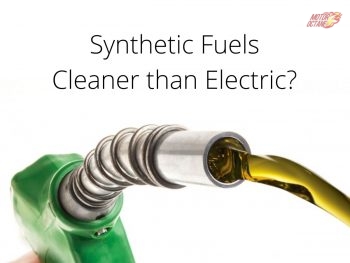| Science has not advanced enough to justify the forced replacement of oil and gas with renewable energy sources that imply a higher cost (if both the raw materials and its production and obsolescence are considered), which also suffer from collateral effects on the environment, such as those caused by dams and permanent deposits where worn parts, dead batteries, etc. end up. In addition, Electricity is needed to charge batteries. EVs aren’t necessarily as “green” as they seem. Instead, other viable renewable energy options are being discovered that neither involve high costs nor are they a source of permanent waste. The most promising renewable energy source seems to be synthetic fuels. It's not only that advanced hybrids promise to deliver far less pollution per mile, and don’t consume nearly as much materials to make them as EVs. It's because of the fuel they'll eventually use: Synthetic fuel. |
Synthetic fuels — The next revolution? 
Up until recently, a carbon-neutral combustion engine was the stuff of dreams. Now it may soon become reality. The secret lies in synthetic or carbon-neutral fuels, whose manufacturing process captures CO₂ — thereby making a significant contribution to limiting global warming.
On the other hand, for climate targets to be achieved, CO₂ emissions from traffic worldwide will have to be reduced 50 percent over the next four decades, and by at least 85 percent in the advanced economies.
After all, even if all cars were to drive electrically one day, aircraft, ships, and even trucks will still run mainly on fuel. Carbon-neutral combustion engines that run on synthetic fuels are thus a very promising path to explore — also for passenger cars.